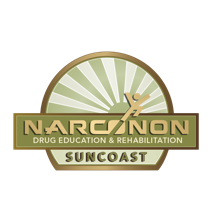Leaving Treatment without a Plan Is Like Going on a Road Trip without a Map: You’re Going to Get Lost

When a person prepares to leave treatment, the hope is always that they have a plan in place that afterwards gives them the best chance to succeed. But what is that exactly? Having a solid plan is obviously important, but sticking to that plan is where people either make it or they don’t.
There are three requirements needed in my opinion for a plan to be successful. It needs to be both realistic and something a person is not going to have a difficult time following, and it should have lots of structure.
First, let’s talk about how a plan can be both realistic and unrealistic. One of the easiest ways to have a plan fail is for it to be based on expectations. If my plan involves a job I already have lined up and I’m expected to be there Monday morning, then my plan is realistic because I know I have a job lined up. However, if my plan involves going out with the expectation of finding a job quickly upon leaving treatment, I am already setting myself up for failure, because my whole plan depends on whether or not I can find a job. If leaving treatment before obtaining work is unavoidable, then I need to have a rock-solid plan in place on how I am going to be spending my time while looking for a job. From experience, that plan cannot just be looking for a job.
Next, there must be a plan in place that I know I can follow. If my plan is based solely on my own self-discipline—something that if I am in treatment for addiction I’m clearly still working on—I’m again setting myself up to fail. There needs to be accountability involved wherever I must find it. When it comes to following a plan it also doesn’t need to be filled with things I know I hate to do just to have a plan. For example, if I haven’t exercised in two years and one of my goals is to start exercising, it’s probably not a good idea to have 3-4 hours of exercise as part of my plan right when I get out. The reason for that is simple. There may be days where I go a few hours at the gym, but there are also probably going to be days where I don’t and then I have no plan in place for the time I was expecting to be exercising. You can see where “realistic” and “not difficult to follow” go hand in hand.

Lastly, there has got to be structure—and lots of it. The quickest way to relapse after treatment is a person having way too much time on their hands. Addiction takes up so much of our time that living drug-free automatically creates a void filled with time. Filling that time with a structured environment will greatly increase a person’s chances of being successful. Failing to provide enough structure will greatly reduce a person’s chances. It is that simple.
That is why having a plan that is realistic, easy to follow and includes a structured environment is so important early on. If a person gets as honest as possible with themselves when they make their plan for leaving treatment and don’t fall into the trap of coming up with something that sounds good but is totally unrealistic (and while also having no real intention of following said plan) the chances of a relapse occurring will go down dramatically. That is one thing that finally clicked in my last treatment program and it took a lot of bad plans for me to realize this. That doesn’t need to be the case for everyone though, as all it takes is being honest with yourself when you come up with a plan and a little bit of effort to make sure it’s as thorough as possible. Doing that can eliminate so much of the stress and anxiety that comes with going back into the world after completing treatment.
If you or anyone you know needs help, please reach out.
